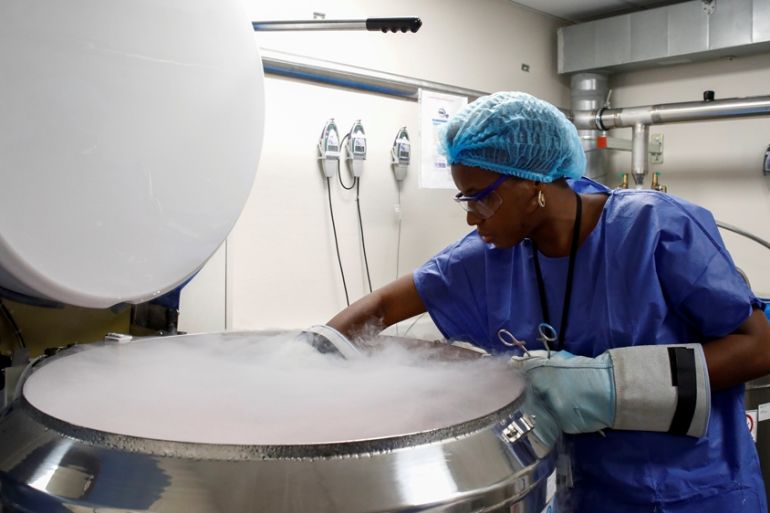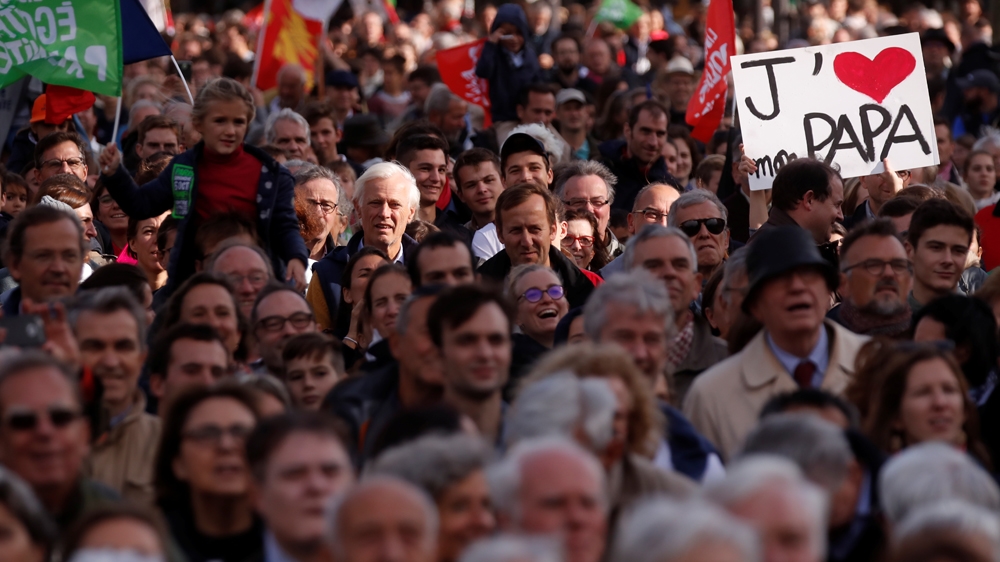French National Assembly approves IVF for lesbians, single women
Critics have promised to fight as the controversial legislation moves to the Senate.

France‘s lower house of parliament has approved a sweeping bioethics bill to give single women and lesbians access to fertility treatments, a move which critics pledged to fight as the legislation moves to the Senate.
National Assembly members voted 359 to 114 on Tuesday, with 72 abstentions, in favour of the first major social reform of President Emmanuel Macron‘s term.
Keep reading
list of 4 itemsNigeria’s women drivers rally together to navigate male-dominated industry
Members of London’s Garrick Club vote to let women join for first time
Why has Australia declared a ‘national crisis’ over violence against women?
During his 2017 election campaign, Macron pledged to support the bill despite deep resistance among right-wing opponents as well as conservative Roman Catholics and other religious groups.
“These measures, while respecting our ethical principles, recognise the family in all its diversity,” France’s health, justice and research ministers said in a joint statement after the vote.
But the text now heads in January to the Senate, where Macron’s centrist party is far outnumbered by the right-wing Republicans.
Tuesday’s vote “does not in any way mean this is done”, said Ludovine de la Rochere, president of the Protest for Everyone association which has spearheaded opposition to the bill.

Some 75,000 people demonstrated against the measure in Paris earlier this month, and de la Rochere said new protests were planned for November 30 and December 1, and again for January 19.
Her group had also mobilised massively in 2012 and 2013 against the legalisation by Macron’s Socialist predecessor Francois Hollande of marriage for homosexual couples.
But that law, which passed nonetheless, did not allow lesbian couples or single women to have children via in vitro fertilisation (IVF) or other medically-assisted means, long a taboo in France.
Many women have instead been forced to go abroad for such treatments, and French courts often refuse to recognise the second mother’s maternity rights in the case of same-sex couples.
Under the proposed law, France’s healthcare system would cover the cost of the procedure for all women under 43.
It would also allow children conceived with donated sperm to find out the donor’s identity when they turn 18, a change from the country’s strict donor anonymity protections.
Domestic violence bracelets
The assembly also voted overwhelmingly on Tuesday to begin using ankle bracelets equipped with GPS trackers to ensure that violent husbands or boyfriends stay away from current or former partners who have reported domestic abuse.
MPs used a fast-track procedure to move the text to the Senate, hoping the system will be in place early next year.
|
|
France has pledged to crack down on domestic violence after a series of killings of women by their male partners this year, and to create 1,000 new places in emergency shelters.
The interior ministry said 121 women were killed at the hands of current or former partners last year, a number which advocacy groups say has already been surpassed this year.
The ankle bracelets are already used in other European countries as well as some US states, where they have contributed to significant declines in fatal attacks.
In France, judges in both civil and penal courts will be able to order their use when imposing restraining orders.